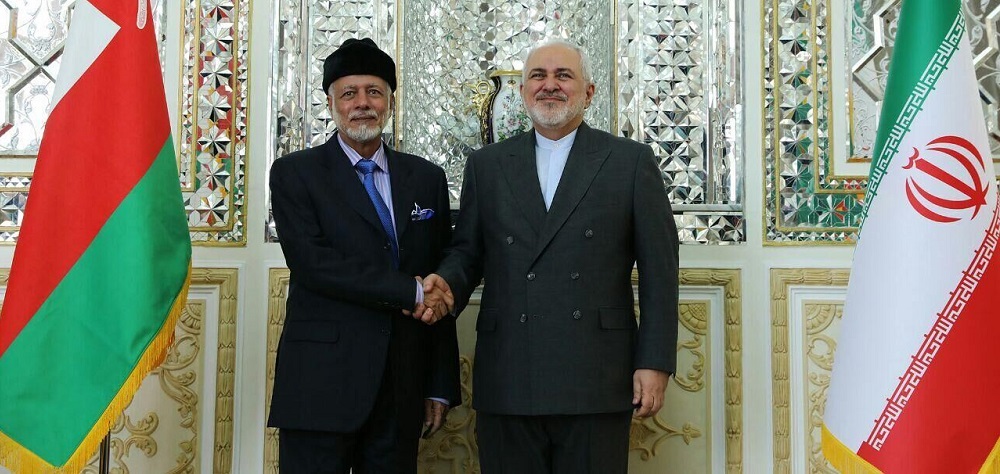Alwaght- Oman's Foreign Minister Yusuf bin Alawi bin Abdullah was welcomed by his Iranian counterpart Mohammad Javad Zarif as he visited Tehran on Monday. The top Omani diplomat then met with the Iranian president, the parliament speaker, and the head of the Supreme National Security Council.
Before his trip, Kuwait's Al-Jarida newspaper had broken the news about the forthcoming visit to Tehran of the Omani official.
What catches the media attention by bin Alwai's visit to Tehran is the record of his visits to Iran that majorly come to carry US messages to Iran. Oman played a distinct role in the American-Iranian nuclear talks. So, every time Oman's foreign minister travels to Iran, the media begin their speculations about if he is carrying a message to Iran from the US. But the news before his trip said something else. He appears to carry his country's agreement on the Iranian-proposed Persian Gulf peace initiative officially dubbed "Hormuz Peace Endeavor" (HOPE). How much is this speculation true?
To answer this question, we need to look back at the recent significant regional developments and Oman's traditional stances towards Iran and the US and also his recent visit to Washington.
One of the main regional developments related to Oman is Muscat's hosting of peace talks between Saudi and Yemeni Ansarullah delegations. Certainly, the considerations and positions of Iran as an important regional actor are crucial in any deal on the Yemeni war case.
It appears that the Omani diplomacy's head has carried to Iran reports on the process of negotiation between Riyadh and the Yemeni movement and of course the initial results the two sides have come reached. So, in Yemen's case, Oman is exchanging Saudi and Iranian messages. It is seeking a mediation between the two key regional players starting with the Yemeni case.
Bin Alwai visited Washington and met with the US Secretary of State Mike Pompeo when he traveled to Washington last week. This US visit supports the belief that he traveled to Iran to transfer a message from Washington.
The Arab country has always tried to push with simultaneous cooperation with Iran and the US in the best possible way. While it is engaged in a high-level partnership with the US, it substantially worked with Iran at the time of the US sanctions while Washington was pushing various sides to halt business with Tehran. This Omani stance is traditional.
Tehran, aware of this Omani position, during the meeting of the Omani official said that Oman can be Iran's business hub in the region, signaling that the Islamic Republic may in the future shift its trade from Dubai as its decades-long terminal to the Omani ports.
Professor Haider al Lawati, the former president of Sultan Qabus University, in a Twitter post claimed that Omani's foreign minister seeks to solve two complicated cases: Iran-Arab case and the Iran-US case. He added that no other thing but Muscat's diplomacy can solve such a tricky case.
What can give seriousness to the Omani professor's analysis and claim is that bin Alawi traveled to Iran almost every two months over the past year. This can signal that he is following to solve an important case.
With regard to the above-mentioned issues and considering the reality that the Iranian President Hassan Rouhani sent the HOPE initiative to the Persian Gulf Arab states through Kuwait which means that Kuwait is also considered as a key peace actor and that Oman is not the only party that pursues the case, it can be said that bin Alwai has a bigger job to do. He is seeking to give a conclusion to the two cases involving Iran, Persian Gulf Arab countries and the US.



























